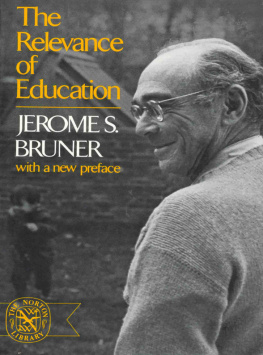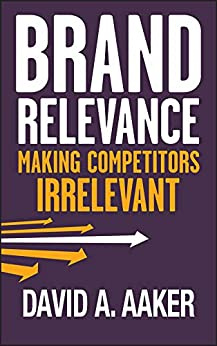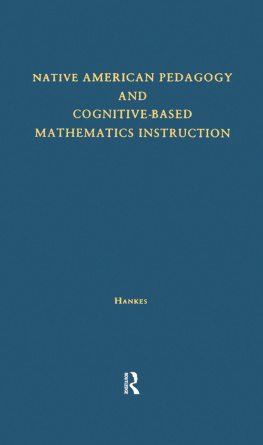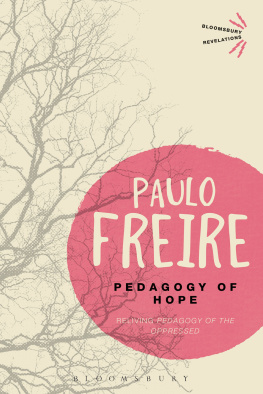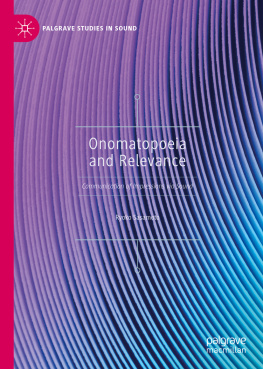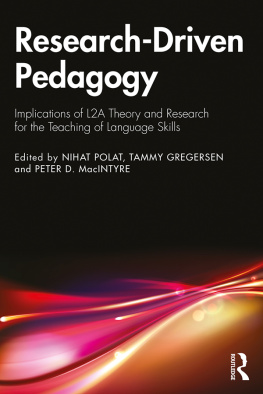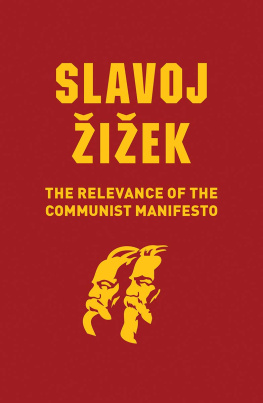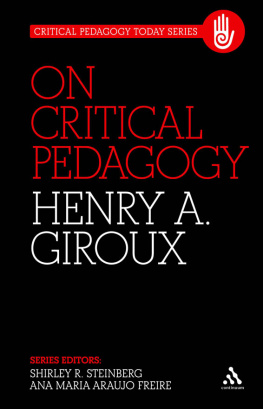Bruner - The Relevance of Education
Here you can read online Bruner - The Relevance of Education full text of the book (entire story) in english for free. Download pdf and epub, get meaning, cover and reviews about this ebook. City: New York, year: 1973, publisher: W. W. Norton & Company, genre: Children. Description of the work, (preface) as well as reviews are available. Best literature library LitArk.com created for fans of good reading and offers a wide selection of genres:
Romance novel
Science fiction
Adventure
Detective
Science
History
Home and family
Prose
Art
Politics
Computer
Non-fiction
Religion
Business
Children
Humor
Choose a favorite category and find really read worthwhile books. Enjoy immersion in the world of imagination, feel the emotions of the characters or learn something new for yourself, make an fascinating discovery.
- Book:The Relevance of Education
- Author:
- Publisher:W. W. Norton & Company
- Genre:
- Year:1973
- City:New York
- Rating:3 / 5
- Favourites:Add to favourites
- Your mark:
- 60
- 1
- 2
- 3
- 4
- 5
The Relevance of Education: summary, description and annotation
We offer to read an annotation, description, summary or preface (depends on what the author of the book "The Relevance of Education" wrote himself). If you haven't found the necessary information about the book — write in the comments, we will try to find it.
The Relevance of Education — read online for free the complete book (whole text) full work
Below is the text of the book, divided by pages. System saving the place of the last page read, allows you to conveniently read the book "The Relevance of Education" online for free, without having to search again every time where you left off. Put a bookmark, and you can go to the page where you finished reading at any time.
Font size:
Interval:
Bookmark:
Mandate from the People (1944)
Opinions and Personality (1956) with Smith and White
The Process of Education (1960)
A Study of Thinking (1962) with Goodnow and Austin
On Knowing: Essays for the Left Hand (1962)
Studies in Cognitive Growth (1966) with Olver and Greenfield
Toward a Theory of Instruction (1966)
Processes of Cognitive Growth: Infancy (1968)
Beyond the Information Given (1973) edited by Jeremy M. Anglin
I shall concern myself in what follows with the vexed problem of the perfectibility of mans intellect. Let me consider the matter in the light of four constraints on the exercise of intellect. The first is the nature of knowing itself, as we observe it in intact human beings attempting to gain knowledge. The second derives from the evolution of intellect in primates, including man. The third constraint is imposed by the growth of intellect from childhood to such perfection as man may reach. The fourth has to do with the nature of knowledge as it becomes codified and organized in the society of learned men. It is too broad a task I have set for myself, but unavoidably so, for the question before us suffers distortion if its perspective is reduced. Better to risk the dangers of a rough sketch.
Let me confess that I, indeed any student of human intellect, can hardly pretend that what I say of the reach and range of human intellect is innocent of social, political, and moral consequences. For however one poses the problem, whatever one finds must inevitably affect or at least question our concept of what is humanly possible in the cultivation of mind. The issue of the perfectibility of intellect stirs passionate debate. Beware those who urge that the debate is without purpose, that the results of scientific inquiry carry self-evident implications with them. For it is a debate that requires continual renewal lest our educational enterprise fail to fulfill its function either as an agency for empowering human minds or as a reflector of the values of the culture. What the student of human intellect can do is to refresh the debate with estimates of what is possible and estimates of what is the cost of the possible.
Consider first the nature of human intellect as we understand it after a half century of investigationinvestigation often more orderly than startling, yet of a nature that yields a steady knowledge. In most recent years, the quest has yielded more surprising turns as we have undertaken the job of forging compatible links between mans intellect and the computers that are its servants.
Perhaps the most pervasive feature of human intellect is its limited capacity at any moment for dealing with information. There is a rule that states that we have about seven slots, plus or minus two, through which the external world can find translation into experience. We easily become overwhelmed by complexity or clutter. Cognitive mastery in a world that generates stimuli far faster than we can sort them depends upon strategies for reducing the complexity and the clutter. But reduction must be selective, attuned to the things that matter. Some of the modes of reduction require, seemingly, no learningas with our adaptation mechanisms. What does not change ceases to register: steady states in their very nature cease to stimulate. Stabilize the image on the retina by getting rid of fine tremor, and the visual world fades away. There is another type of selectivity that reflects mans deepest intellectual trait and is heavily dependent on learning. Man constructs models of his world, not only templates that represent what he encounters and in what context, but also ones that permit him to go beyond them. He learns the world in a way that enables him to make predictions of what comes next by matching a few milliseconds of what is now experienced to a stored model and reading the rest from the model. We see a contour and a snatch of movement. Ah yes, thats the night watchman checking the windows Or a patient sits before a physician complaining that vision in one eye is unaccountably dim. Both doctor and patient are involved in kindred activities. If the doctor diagnoses a scotoma, a deadened area on the retina, he does so by a process analogous to the process that leads the patient not to see a hole in his visual field, but a dimming, for the victim of a scotoma completes the hole by extrapolating what the rest of the eye is taking in. It is in the nature of the selectivity governed by these models that we come increasingly to register easily on those things in the world that we expect; indeed we assume that the expected is there on the basis of a minimum of information. There is compelling evidence that so long as the environment conforms to the expected patterns within reasonable limits, alerting mechanisms in the brain are quietened. But once expectancy is violated, once the world ceases strikingly to correspond to our models of it (and it must be rather striking, for we ride roughshod over minor deviations), then all the alarms go off and we are at full alertness, thanks to our neural reticular system. So man can not only deal with information before him, but go far beyond the information givenwith all that this implies both for swiftness of intellect and for fallibility. Almost by definition, the exercise of intellect, involving as it must the use of short cuts and of leaps from partial evidence, always courts the possibility of error. It is the good fortune of our species that not only are we highly adept at correction (given sufficient freedom from time pressure), but also have learned to institutionalize ways of keeping error within tolerable limits.
The models or stored theories of the world that are so useful in inference are strikingly generic and reflect mans ubiquitous tendency to categorize. William James remarked that the life of mind begins when the child is first able to proclaim, Aha, thingumbob again. We organize experience to represent not only the particulars that have been experienced, but the classes of events of which the particulars are exemplars. We go not only from part to whole, but irresistibly from the particular to the general. At least one distinguished linguist has argued in recent times that this generic tendency of human intellect must be innately human, for without it one could not master the complex web of categorial or substitution rules that constitutes the syntax of languageany language. Both in achieving the economy with which human thought represents the world and in effecting swift correction for error, the categorizing tendency of intelligence is centralfor it yields a structure of thought that becomes hierarchically organized with growth, forming branching structures in which it is relatively easy to search for alternatives. The blunders occur, of course, where things that must be together for action or for understanding happen to be organized in different hierarchies. It is a form of error that is as familiar in science as in everyday life.
I do not mean to imply, of course, that man structures his knowledge of the world only by the categorial rules of inclusion, exclusion, and overlap, for clearly he traffics in far greater complexity, too. Witness the almost irresistible urge to see cause and effect. Rather, the categorial nature of thought underlines its rule-bound nature. The eighteenth-century assumption that knowledge grows by a gradual accretion of associations built up by contact with events that are contiguous in time, space, or quality does not fit the facts of mental life. There are spheres where such associative laws operate within limits, as, say, with material that is strange and meaningless (the psychologists nonsense syllables, for example), but for the most part organization is a far more active process of imposing orderas by forming a hypothesis and then checking it to be sure.
Font size:
Interval:
Bookmark:
Similar books «The Relevance of Education»
Look at similar books to The Relevance of Education. We have selected literature similar in name and meaning in the hope of providing readers with more options to find new, interesting, not yet read works.
Discussion, reviews of the book The Relevance of Education and just readers' own opinions. Leave your comments, write what you think about the work, its meaning or the main characters. Specify what exactly you liked and what you didn't like, and why you think so.

